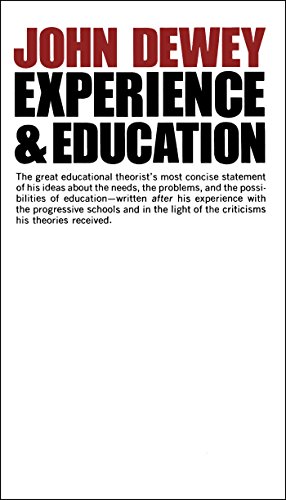Experience And Education by John Dewey Link to heading
Summary Link to heading
“Experience and Education” by John Dewey is a seminal work in the philosophy of education that challenges traditional education models and proposes a progressive approach. Dewey critiques both traditional and progressive education systems, pointing out their limitations and offering a balanced, experiential framework for effective learning. He emphasizes the importance of continuity and interaction in the learning process, suggesting that education should be a systematic, cumulative process integrating experience to foster growth, intellectual curiosity, and critical thinking.
Review Link to heading
John Dewey’s “Experience and Education” is a cornerstone in educational philosophy and reform. It has had a profound impact on educational practices by arguing for an experiential, student-centered approach. Its strengths lie in Dewey’s clear articulation of the drawbacks of traditional educational models and his proposal of a practical alternative that fuses experience with learning. Critics, however, might note the book’s abstract nature and the difficulty in applying Dewey’s theories directly in diverse educational settings.
Key Takeaways Link to heading
- Continuity and Interaction: Education must consider the continuity of experience and the interaction between the student and the curriculum for effective learning.
- Balanced Approach: An effective educational model must balance structured guidance and freedom to explore.
- Experience-Based Learning: Real-world experiences are crucial to developing critical thinking and problem-solving skills.
- Reflective Thinking: Education should encourage students not just to learn facts but to reflect on their learning experiences and think critically about them.
Recommendation Link to heading
“Experience and Education” is highly recommended for educators, policymakers, and students of educational philosophy. Those interested in progressive education reform, or who seek to understand how to integrate experiential learning into educational practice, will greatly benefit from Dewey’s insights. His work remains relevant for anyone interested in fostering environments that nurture critical thinking, independence, and lifelong learning.
